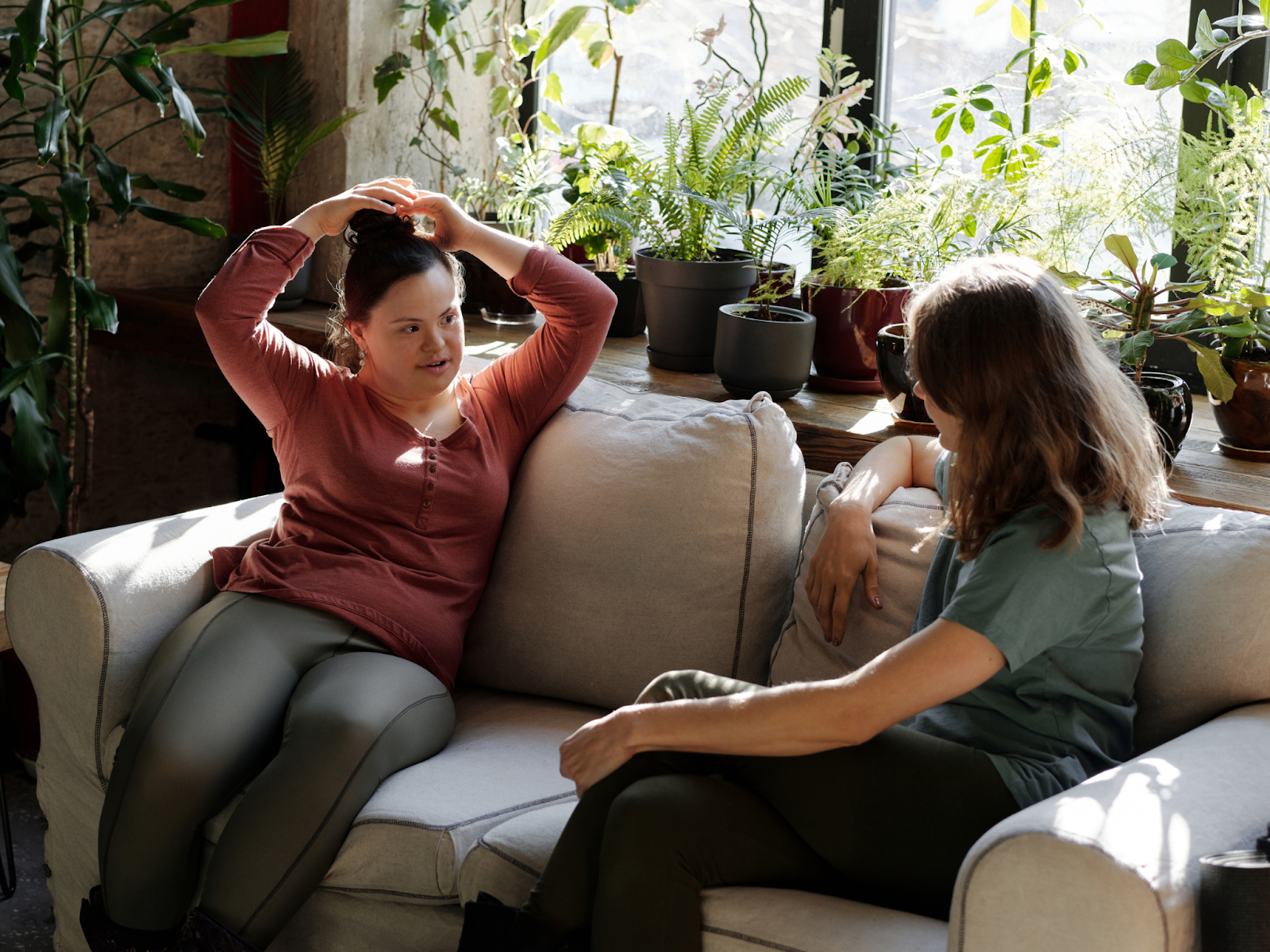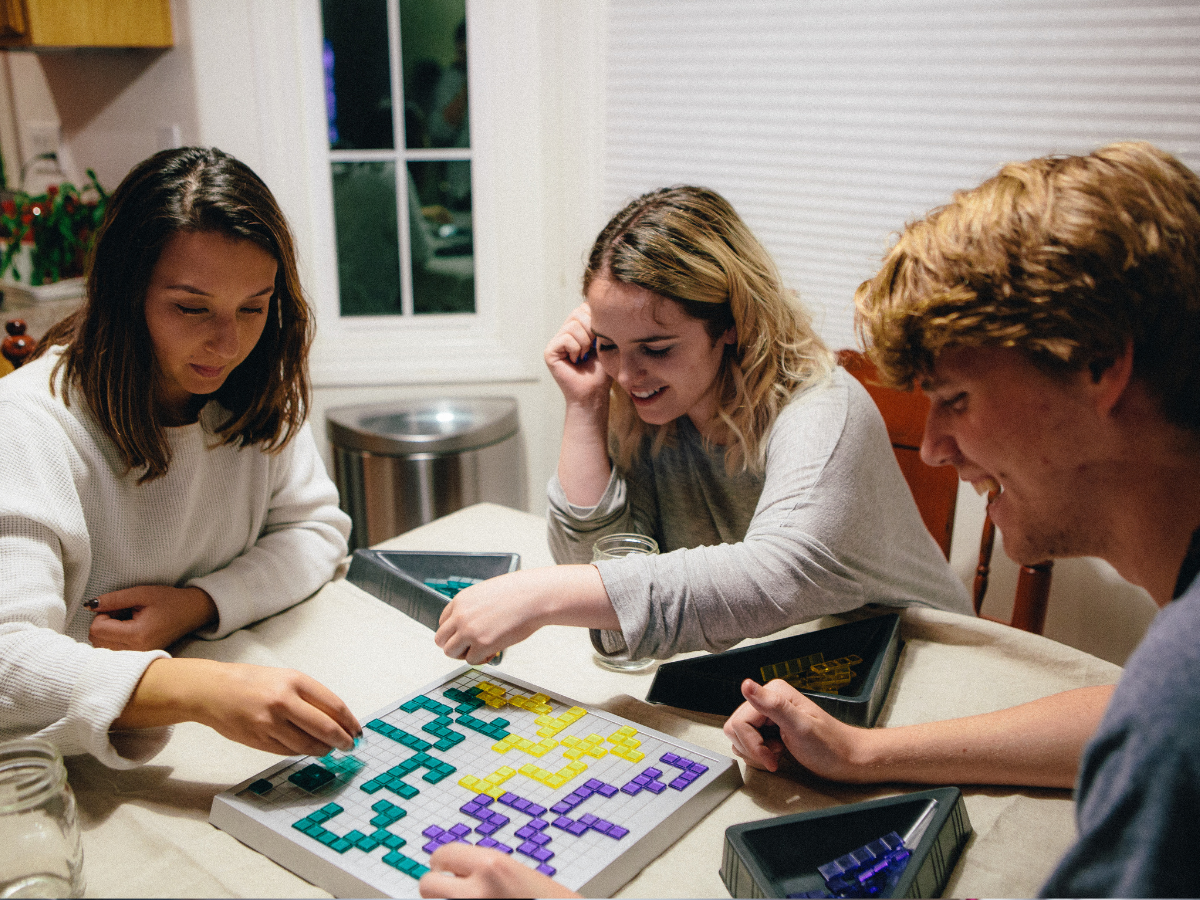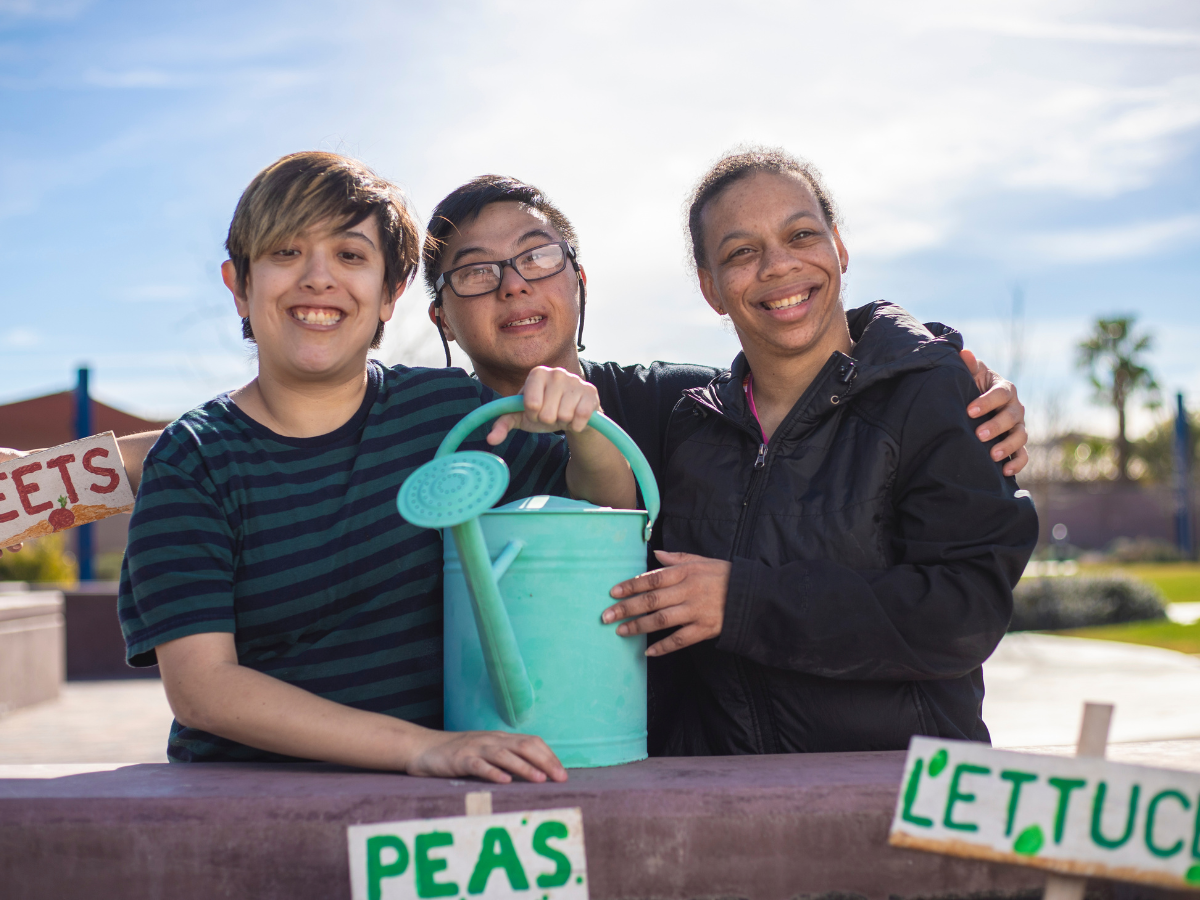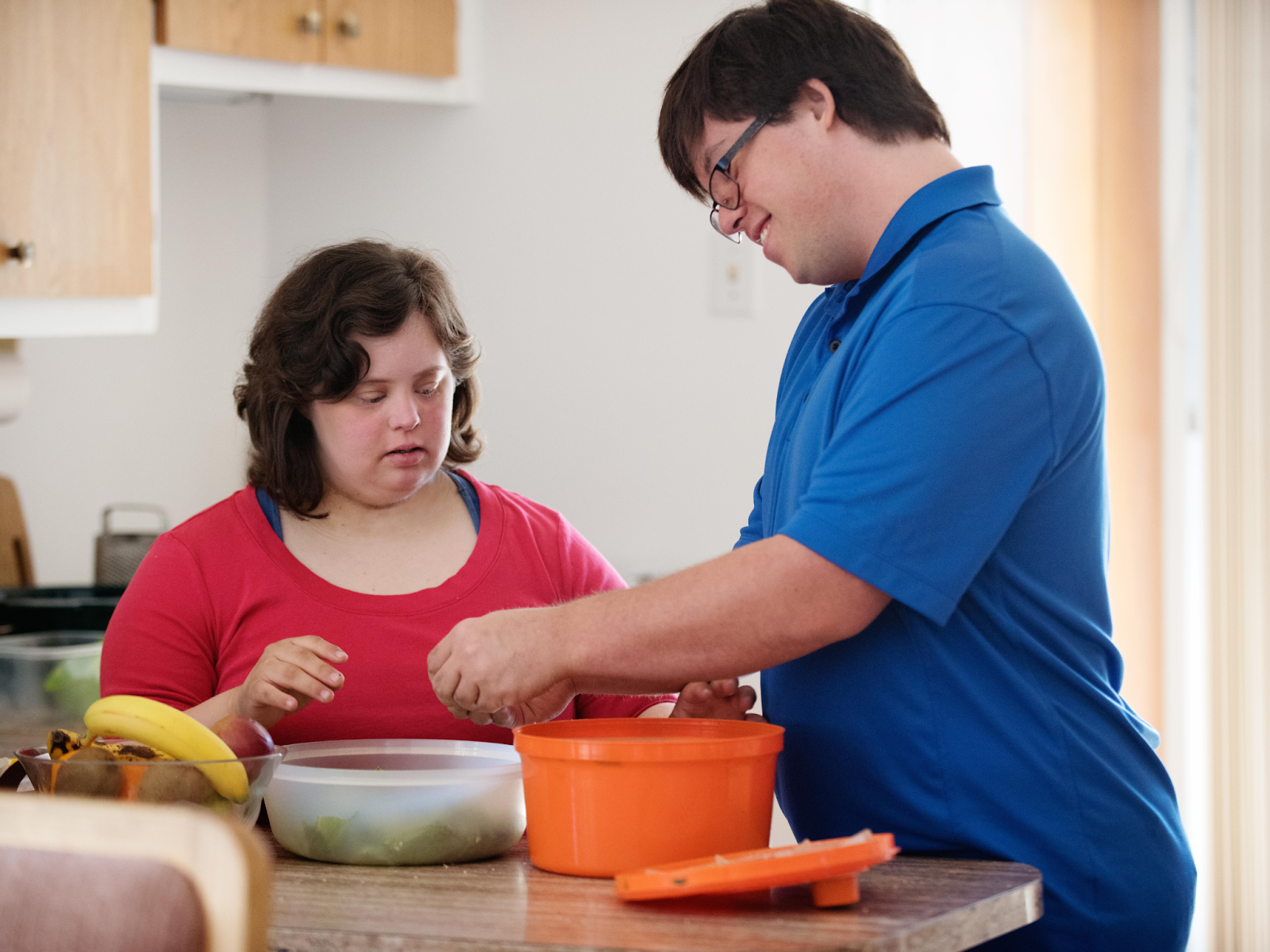Everybody is different—that’s one of the best parts of life! There are so many unique and interesting people in the world.
People with intellectual and developmental disabilities (IDDs) may have specific needs, communication styles, and social concerns that differ from the norms that non-disabled people are familiar with, but that doesn’t mean they can’t be great friends.
We’ve previously shared some tips for making friends for adults with intellectual disabilities, but there are two sides to every friendship! Learning how to be a good friend to someone with specific needs is about getting to know what makes them special and opening your mind to all the different wants people can connect and care for each other.
The Importance of Making Friends with Disabilities
People with disabilities face many challenges in life that non-disabled people don’t always realize. Physical and social isolation are serious concerns for people with IDDs of all ages.
Friendship for people with disabilities is about more than having someone to talk to; it’s a source of inclusion in their community. Genuine friendships are a source of joy and security in life, and everybody deserves the opportunity to enjoy safe, fulfilling connections.
Socializing is an important part of life, but when someone has specific needs or is learning social skills, they might have trouble relating to others. Making friends with people with disabilities gives non-disabled people a chance to see the world in a new way and open themselves up to new social dynamics.
How to be a Good Friend to Someone with Specific Needs
Learning how to be a good friend is about expressing yourself honestly and opening up space for someone else to express themself.
Every friendship is different, and being a friend to someone with specific needs sometimes requires extra self-awareness and mindfulness. Here are some good places to start.
Be Curious
Curiosity is the basis of any good relationship. Ask about a person’s specific preferences, interests, and hobbies. Pay attention to what they do and don’t like in social situations.
Be considerate of their limitations, celebrate their strengths, and be open to new communication styles.
Consider Different Forms of Connection
Non-disabled people are accustomed to social rituals that may not apply to people with disabilities.
Adults with IDDs may prefer alternative forms of communication and find large, face-to-face gatherings uncomfortable. Digital messaging, online gaming, and small gatherings might be preferable for some, so be open to whatever communication style makes your friend feel most comfortable.
Be Genuine
A good friendship is one where you can be your authentic self. Every friendship is different, but the best ones are built on genuine connection and good intentions.
Making an effort to include someone or going out of your way to be extra friendly can be kind gestures, but if you’re only doing it because a person is “different” or you feel bad for them, there’s not much room for a real friendship to grow.
Keep an Open Mind
Friendships come in all shapes and sizes. Your friendship with someone who has a disability will probably look and feel different than your friendship with a non-disabled person.
Approach every encounter with an open mind and focus on getting to know what makes someone special.
Friendships are opportunities to learn about ourselves and others, and the only way to find out what we have to learn is by opening ourselves up to new experiences and new forms of connection.
Learn More About Fostering Friendships and Find Additional Disability Resources with NeuroNav
Building meaningful relationships is an important part of life. For people with disabilities, this isn’t always easy. We all deserve safe, supportive friendships. Learning how to be a good friend can help you expand your world and open your mind to new possibilities.
NeuroNav is here to support friends, families, and people with disabilities in building strong support networks. Through our independent facilitation services, we help Californians with disabilities make use of the Self-Determination Program (SDP).
SDP gives Californians with IDDs more choice in the disability resources and services they receive, paving the way for greater independence, freedom, and advocacy. Sign up for a free consultation today and see how NeuroNav can support you on your self-determination journey.




